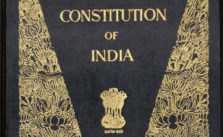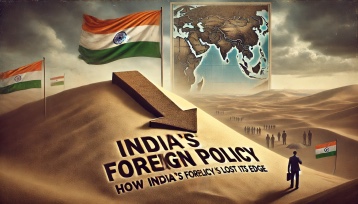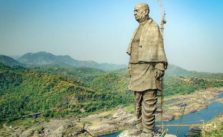WE, THE PEOPLE OF INDIA, having solemnly resolved to constitute India into a SOVEREIGN, SOCIALIST, SECULAR, DEMOCRATIC REPUBLIC and to secure to all its citizens:
JUSTICE, social, economic and political;
LIBERTY of thought, expression, belief, faith and worship;
EQUALITY of status and of opportunity; and to promote among them all
FRATERNITY assuring the dignity of the individual and the unity and integrity of the Nation.
The words stated above have been taken from the Preamble of The Indian Constitution. Over the recent times, with the events that have been happening across the country, we the citizens of India have been forced to think of how true to the meaning are most of these words that have so nicely been scripted in the preamble of our constitution.
The fact that India is a Sovereign and Socialist country is undeniable, but coming to the point where India is described as being Secular,this needs to be pondered upon. India is a country that has a melange of religions, traditions and cultures. Are all the religions in the country treated at par, is the question at this juncture.
India- A Secular Country?
The disparities and conflicts between the Hindus and the Muslims that were perpetrated by the British for their own benefits ages ago have left scars that deny to vanish from the present day India. Instead these religious differences have grown over time and caused serious damage to the citizens and the image of our country.
From the recent incidents that have come to light regarding the extremist behaviour of some of the Hindu groups, showcase the evident growth of differences between both the major religions of the world.
When a Muslim man from Rajasthan is hacked and burnt alive for an alleged affair with a Hindu lady, the question if India is really a secular country arises. Afrazul was an old man who left his family at the age of 14 for earning bread. When one day a villager thrashes up the old man and burns him alive over a love-jihad rumour, the world for the family of the murdered turns into a nightmare.
In another of such incidents when another old man is violently lynched and killed over a rumour spread that he had stolen and slaughtered the calf of a neighbour, brings us to the same question. Do we really live in a secular country?
The most striking factor of both these incidents is that the crime was committed based on a rumour and in both the cases the criminals haven’t been condemned.
Have the sufferers got the Justice yet?
Be it given to the delay in the investigations made by the Investigative teams or to any other factor, Justice has either been delayed or has denied to those who wanted justice more desperately than any monetary assistance.
Out of the 20 accused that were arrested over a number of charges in the Dadri lynching case, 14 have got the bail. one key accused Vishal Rana, the son of a local BJP worker Sanjay Rana, has been let out on bail too.
This brings us to another thought. Why do sons of politicians get so many advantages even after committing heinous crimes? They say law is equal for everyone. Is that really the case?
Why are we silenced when we have the liberty to speak our heart and mind?
They have been a number of incidents that came to light when people have been killed for speaking the truth, putting forth an opinion or to bring a change.
Narendra Dhabolkar, M.M. Kalburgi, Gauri Lankesh, Ram Chandra Chatrapathi have been some of the people who were killed for putting out their opinions and who tried to bring a change.
There are a number of other people who are targeted and silenced for questioning the acts of our politicians and government.
Is everyone in India treated equal?
This is one question that has been long debated given to the fact that so many people fight for reservations in India. Reservation was started in India in order to give opportunities to the down-trodden and help them lead a proper and happy life.
But with how the things have been going on, it seems as though some day almost every caste would come on to the roads and agitate to get reservations.
Reservations were started to promote education and literacy. But now, we live in an era where politicians use these reservations as a tool to win elections.
One of the key points of the manifesto of the Telugu Desam Party (TDP) of Andhra Pradesh was to give reservations to the Kapu community that constitute up to 27% population of Andhra Pradesh. In 2014, TDP won the elections and Chandra Babu Naidu became the Chief Minister. Until November, 2017 the Kapu community and the kapus agitated and kept reminding the chief minister of his promises. On December 1st, the chief Minister promised to put forth the bill regarding the reservations in the Parliament. We need to keep in mind the fact that the Assembly elections in Andhra Pradesh could be held anytime between 2018 and 2019.
Reservations have clearly become an active part of the vote bank politics too.In another of such incidents of the vote bank politics, the Congress have added a point in their manifesto to provide reservation quota for the Patidars.
If reservations help those who need it the most, there are the best assistance. But then, when those who don’t need reservations get to enjoy all the benefits, there seems to be no hint of equality among the people.
The article has not been written to target any political party or the government. It is based on sheer facts and how certain incidents that occur in our country raise questions to the Constitution of India and also the constitution does not just belong to the politicians, it belongs to all those people who are the citizens of the country and hence it is important for each of us to check ourselves to see what sort of an example we set.



